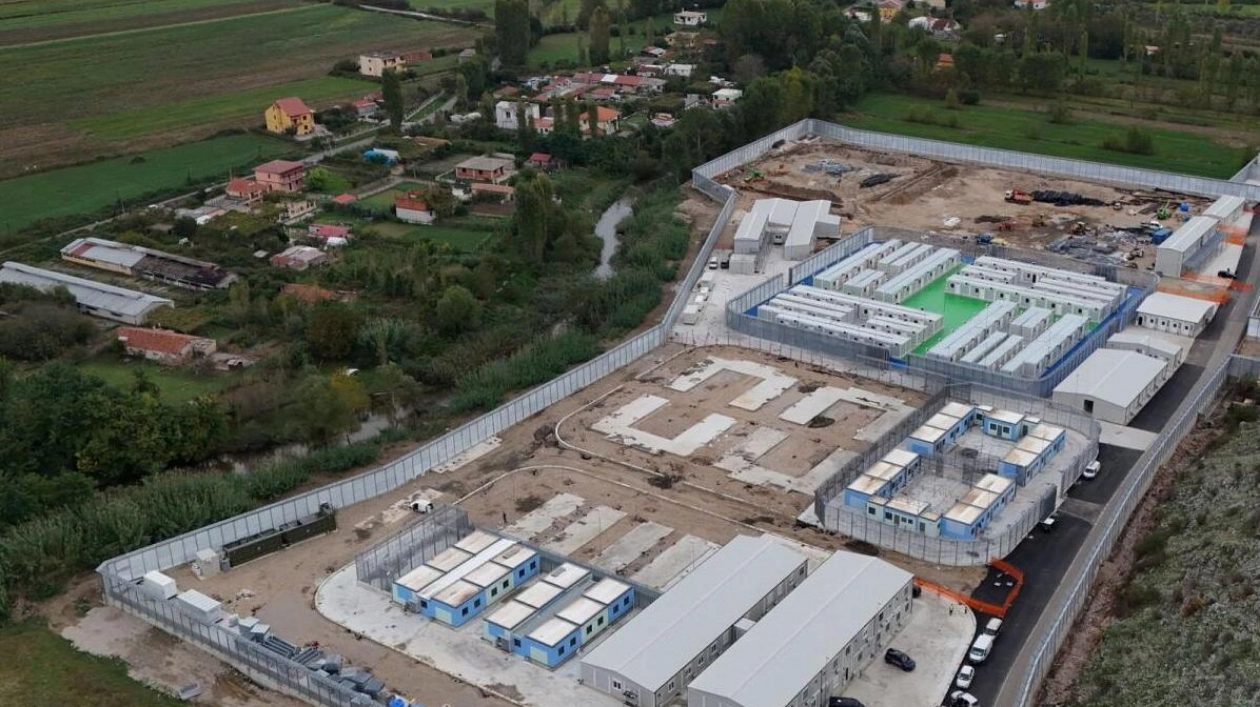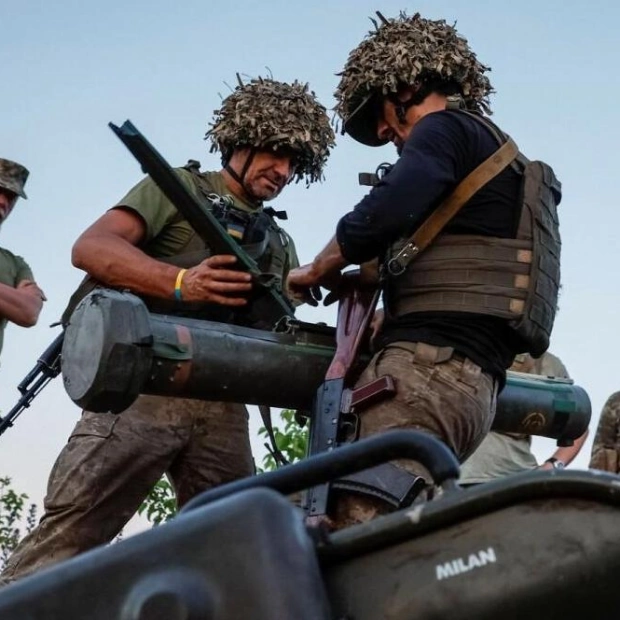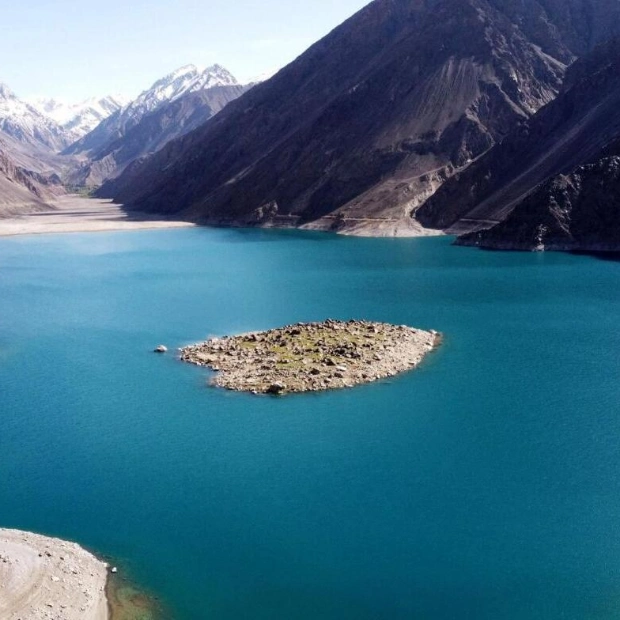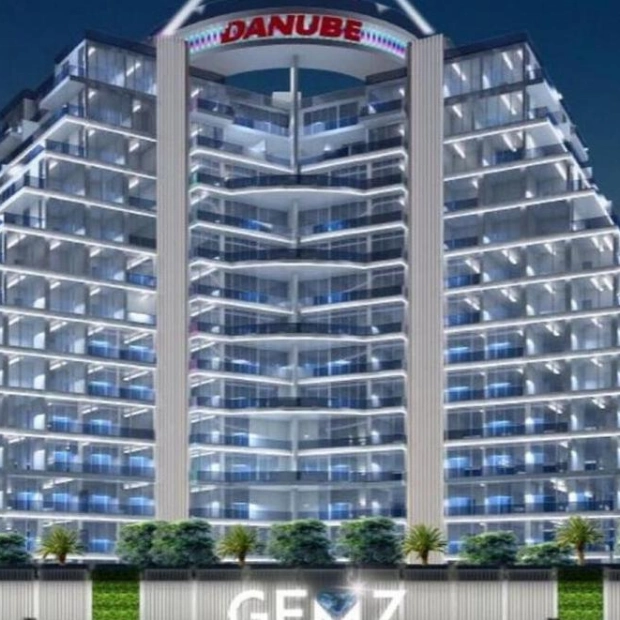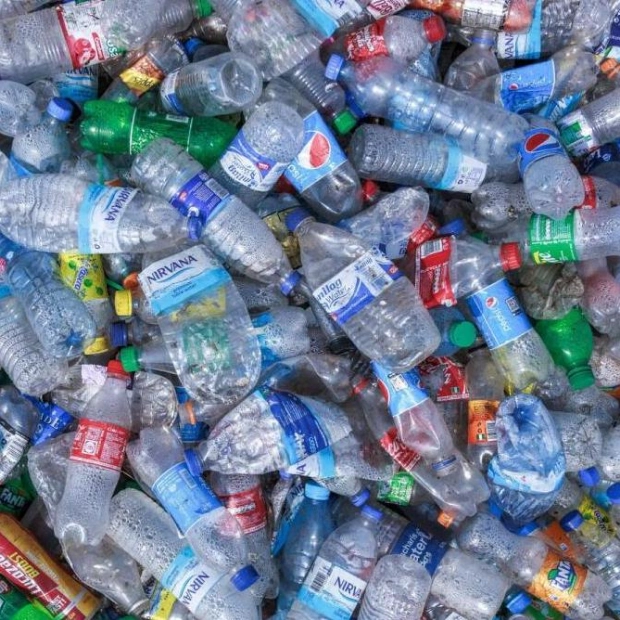A drone captured the camp for illegal migrants in Gjader, Albania, on October 11, 2024. — Reuters
Italy initiated the transfer of migrants intercepted in the Mediterranean to centers in Albania on Monday, marking a European first that has drawn criticism from human rights organizations. The Italian navy's Libra patrol vessel embarked with the first group of potential asylum seekers on Monday, according to a government source who spoke to AFP but did not specify the number of people on board. The vessel is expected to arrive on Wednesday, as reported by La Repubblica daily, which noted that the passengers were from Egypt and Bangladesh.
Far-right Prime Minister Giorgia Meloni, who took office in October 2022 with a pledge to halt the influx of tens of thousands of migrants arriving annually from North Africa, struck a deal with Albanian counterpart Edi Rama in November last year to process some asylum seekers in his country, which is located across the Adriatic Sea but is not part of the European Union. The five-year agreement, estimated to cost Italy 160 million euros annually, involves adult male migrants intercepted by Italian navy or coastguard vessels in international waters within Italy's search and rescue zone. These migrants will undergo an initial screening on a military ship at sea, after which a determination will be made regarding which migrants are from countries deemed "safe," theoretically facilitating repatriation.
Upon arrival in Albania, they will be transported to a center in the northern port of Shengjin for registration and health checks, followed by transfer to a center in nearby Gjader to await the processing of their asylum claims. The Gjader facility, a complex of prefabricated buildings encircled by high walls and guarded by police, includes a section for migrants whose asylum applications have been denied, as well as a small jail. This initiative is being closely observed by other European countries concerned about irregular migration and is likely to be a topic of discussion during this week's EU leaders' summit. However, it has also raised significant concerns.
The centers will operate under Italian law, with Italian security personnel and staff, and judges hearing cases via video link from Rome. Migrants considered vulnerable under EU law, including minors, women, individuals with mental health issues, or victims of torture, abuse, or human trafficking, will be exempt. Human rights groups, however, question whether Albania can provide adequate protection for asylum seekers. Amnesty International has condemned the scheme as a "cruel experiment" that stains the Italian government. Sea Watch, an NGO that rescues migrants in the Mediterranean, described the start of the scheme as a "dark chapter." Elly Schlein, leader of Italy's center-left Democratic Party, accused the government of wasting taxpayers' money on a scheme that disregards fundamental human rights.
Initially, the Italian government stated that the centers would accommodate up to 3,000 people at a time, but media reports suggest the current number of beds is less than half that. Interior Minister Matteo Piantedosi referred to the facilities as "light detention" centers, emphasizing that there is no barbed wire and that assistance is provided. He added that everyone can apply for international protection and receive a response within a few days. However, Italy's UILPA prison guards' union, whose members will be deployed in Albania, criticized Piantedosi's assessment, noting that the water and electricity supply is not yet fully operational. The UN's refugee agency (UNHCR) will be present on-site in an observational role for at least the first three months.
Illegal immigration has been a key focus for Meloni since her post-fascist Brothers of Italy party's surprise election victory in 2022. Her government has also reached an agreement with Tunisia, providing aid in exchange for increased efforts to prevent migrants from reaching Italy. Additionally, Rome has renewed a 2017 deal with the UN-backed Libyan government in Tripoli to train and fund the Libyan coastguard to curb departures and return migrants already at sea to Libya. According to interior ministry data, almost 160,000 migrants arrived by boat on Italian shores last year, up from 105,000 the previous year. However, the numbers have significantly decreased in 2024, with around 53,300 arrivals recorded so far, compared to nearly 140,000 in the same period in 2023.
